Although Stikado was formally registered only at the beginning of 2022, the co-founders (Jon and Irina) have long been actively involved in different initiatives across the globe, always trying to make a positive difference. An important year in their journey was 2015, while they were living in Lugarawa, a small remote village in Tanzania's southern highlands. This was the place where the seeds of Stikado were initially planted, growing into the organization it is today.
While in Lugarawa, Stikado teamed up with Lugarawa Development Foundation (LDF), a local non-governmental organization ran by local volunteers. LDF was mainly made up of doctors, teachers, and business owners working in the village. They were a relatively young organization with a small team, but, due to their energy and dedication, they had already managed to create some important projects for the local community, in a very short time and with very few resources.
Through their partnership, Stikado and LDF developed several socio-cultural and educational projects designed to benefit the communities of the Lugarawa Ward. Central to these activities were the environmental protection and the responsible use of natural resources. Together, the two teams, have organized community clean-ups, aimed at restoring the pristine beauty of local landscapes, and educational sessions with students from the local schools, intended to foster a deeper understanding of environmental protection among the younger generation. Additionally, they organized public debates engaging both villagers and local leaders in discussions surrounding the sustainable development of the land they called home.
Lugarawa village
Lugarawa is a tranquil place, far from the hustle and bustle of urban life, nestled in a beautiful valley surrounded by lush green hills and mountains reaching heights of up to 2000 meters. It is located in Ludewa District, one of the poorest and least developed areas of Tanzania.
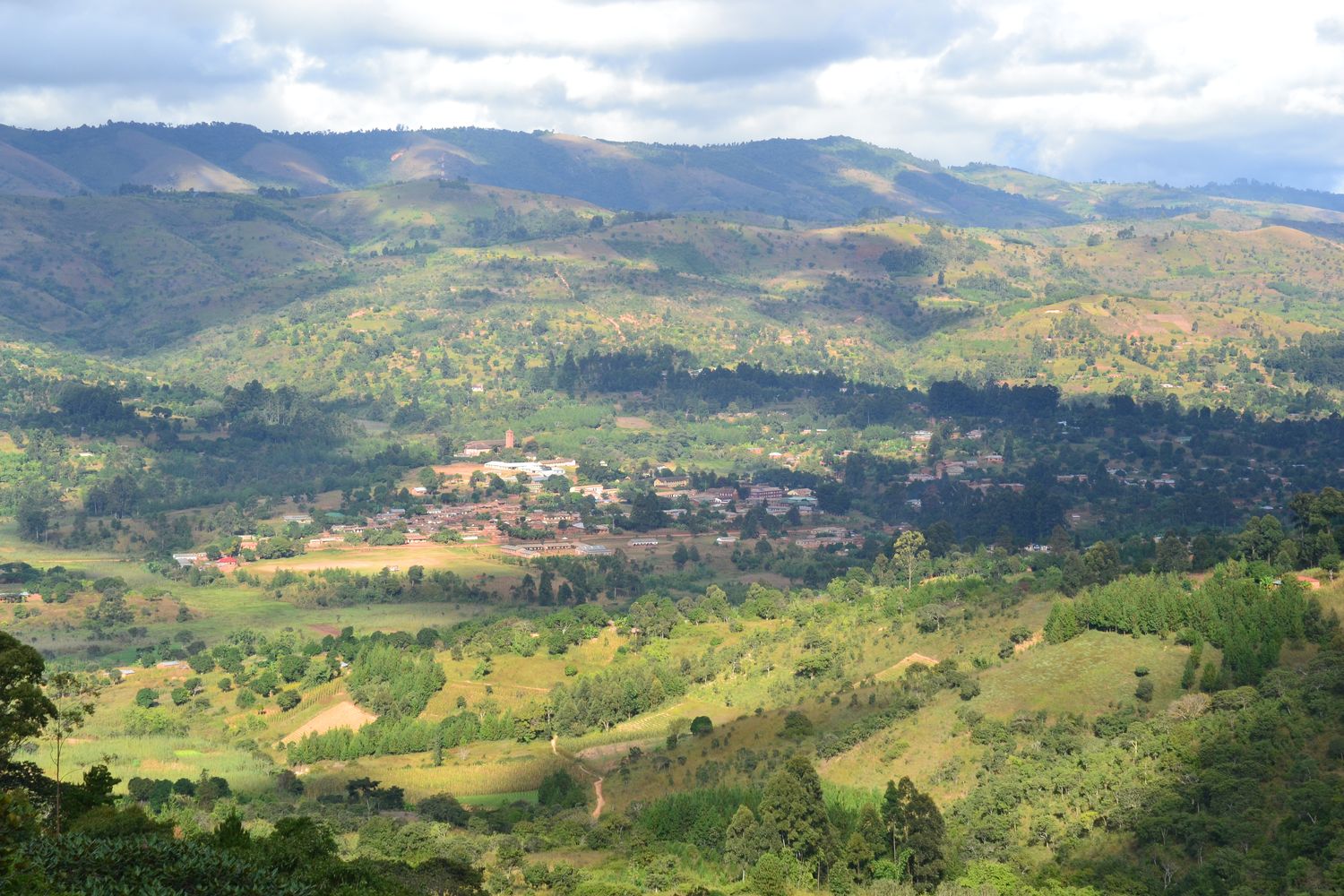
Lugarawa village, photo by Irina Mihălcuț
Despite its picturesque beauty, life in Lugarawa was marked by the absence of modern conveniences. There, the electricity was almost non-existent, as the village was not connected yet to the grid. Mobile telephone connectivity was sporadic and unreliable, often forcing the residents to seek higher ground in search of a faint signal. The absence of a supermarket left the locals reliant on a handful of small shops and the local market, offering essentials to only meet the community's basic needs.
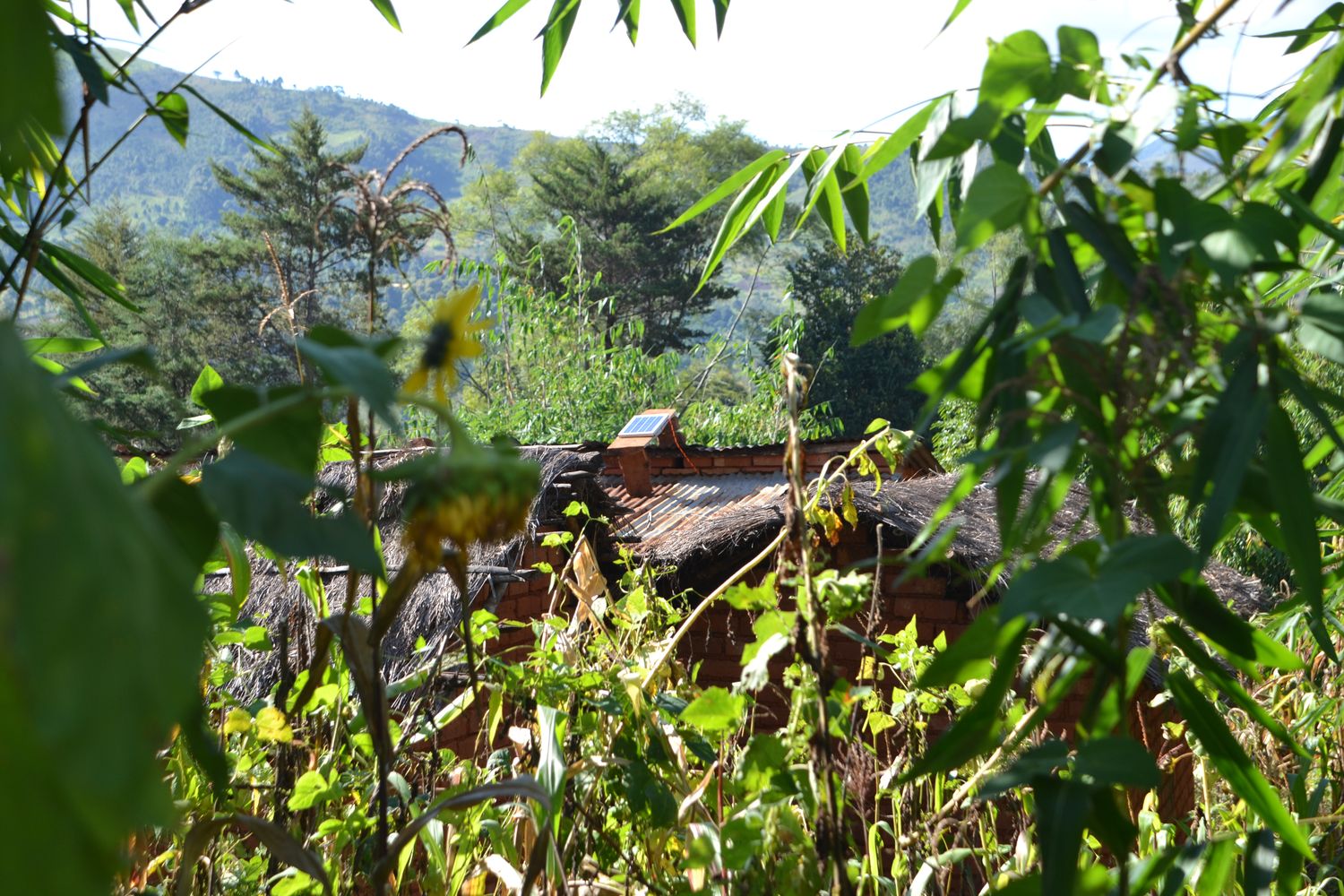 Photovoltaic panels for electricity in Lugarawa village, photo by Jon Elvestad
Photovoltaic panels for electricity in Lugarawa village, photo by Jon Elvestad
For those wanting to leave the village, the journey to the nearest town, Njombe, was many times marked by challenges. A 2 to 3 hours drive in a good vehicle under favorable conditions, the dirt road became an adventure during bad weather. Rain transformed the earth into slippery mud and the long dry season covered the road in sand, both prolonging the journey to over 4 hours.
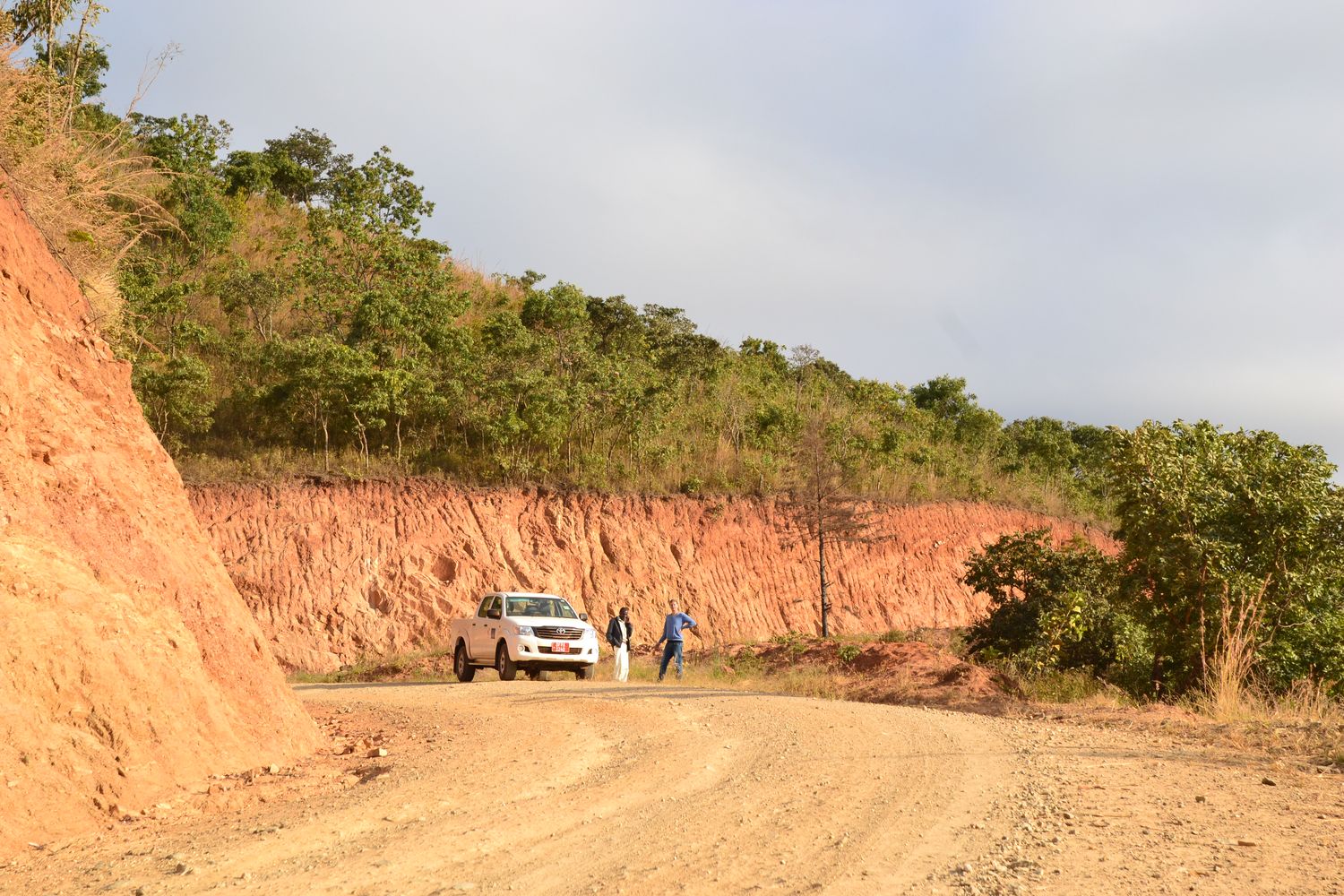
The road leading to Lugarawa village, photo by Irina Mihălcuț
Despite its remoteness and the challenges it presented, Lugarawa was (and still is) a village marked by simplicity but also by a strong community spirit, making it a captivating destination for those seeking to explore the lesser-known gems of Tanzania.
The birth of Lugarawa Days Festival
Lugarawa Days Festival is a celebration of community spirit for the three villages in the Lugarawa Ward: Shaurimoyo, Mdilidili and Lugarawa. Born from the collaboration between Stikado and Lugarawa Development Foundation (LDF), this festival wanted to amplify the impact of LDF's local initiatives while putting the spotlight on the village's cultural treasure and important community issues. Through a diverse palette of activities, ranging from educational encounters to animated sports competitions and captivating artistic performances, the festival was designed to provide a platform for having fun, sharing knowledge, and fostering collaboration.
Central to the planning of the festival’s first edition was the community’s commitment to environmental protection and the responsible use of natural resources. With the beautiful landscapes of Lugarawa threatened by deforestation, water scarcity, and pollution, the festival served as a cry for doing more to protect the nature. Through informative presentations and a photo exhibition, and other artistic expressions, the community was invited to embrace a harmonious relationship with nature, understanding that a healthy local environment is inseparable from the well-being of future generations.
The first edition of Lugarawa Days Festival
This first edition of Lugarawa Days Festival took place on the 8th and 9th of August 2015, coinciding with the Nane Nane celebrations (Tanzania's Farmer’s Day). This event was more than just a spontaneous gathering, it was the culmination of months of careful planning and dedication by the LDF and Stikado teams, under the coordination of Irina Mihălcuț (the co-founder of Stikado). Discussions about the festival began as early as March 2015, continuing with the creation of a detailed plan by May, outlining logistics, roles, budget, and activities.
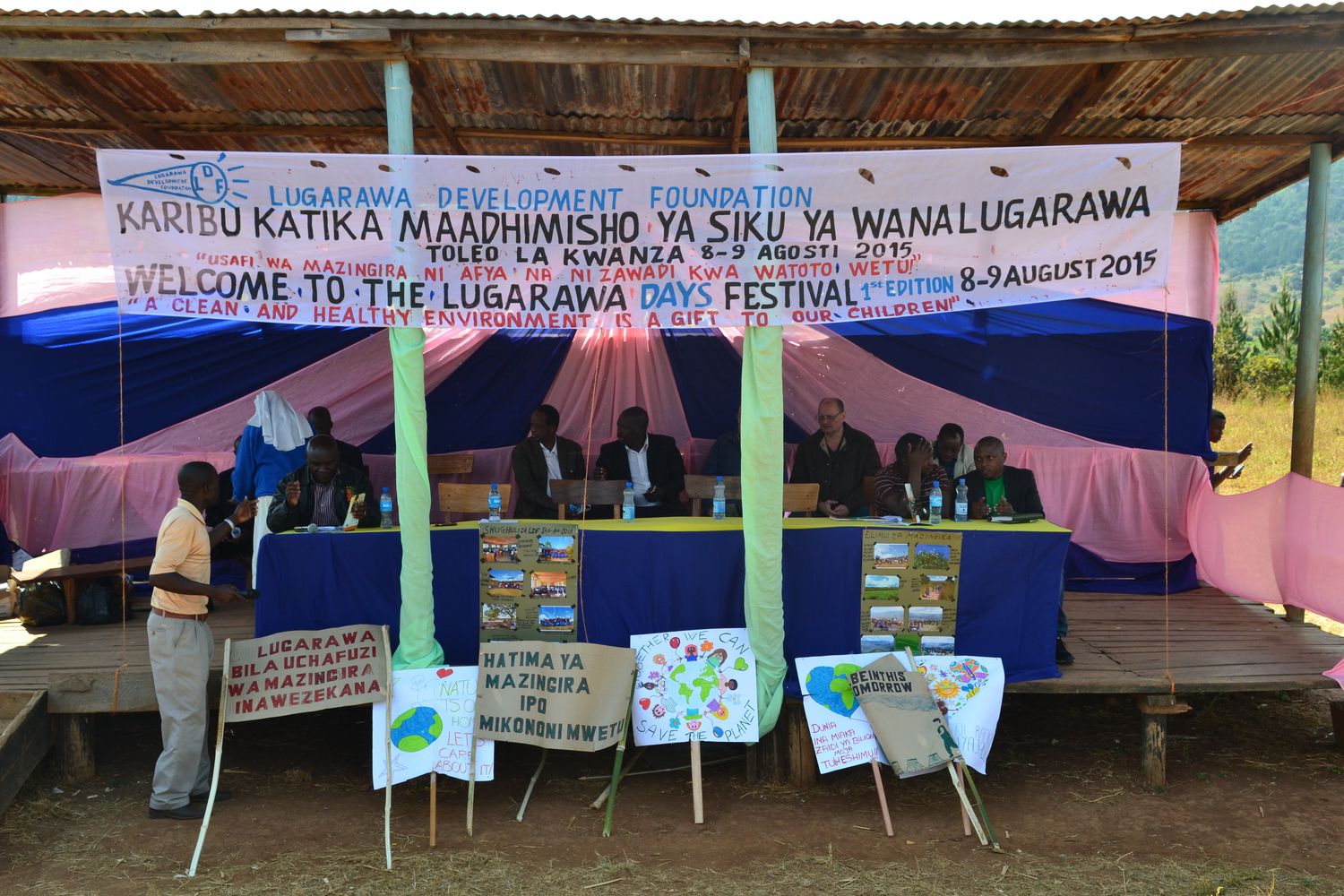
The official banner for the Lugarawa Days Festival, photo by Irina Mihălcuț
The core team was made of just 6 people: Lenis Mtitu, Castory Kiowi, Oigen Mlelwa, Issa Thabit, Longinus Mgani, and Irina Mihălcuț, and it was supported by more than 50 volunteers (mainly students from the local schools and members and employees of other organizations present in the area).
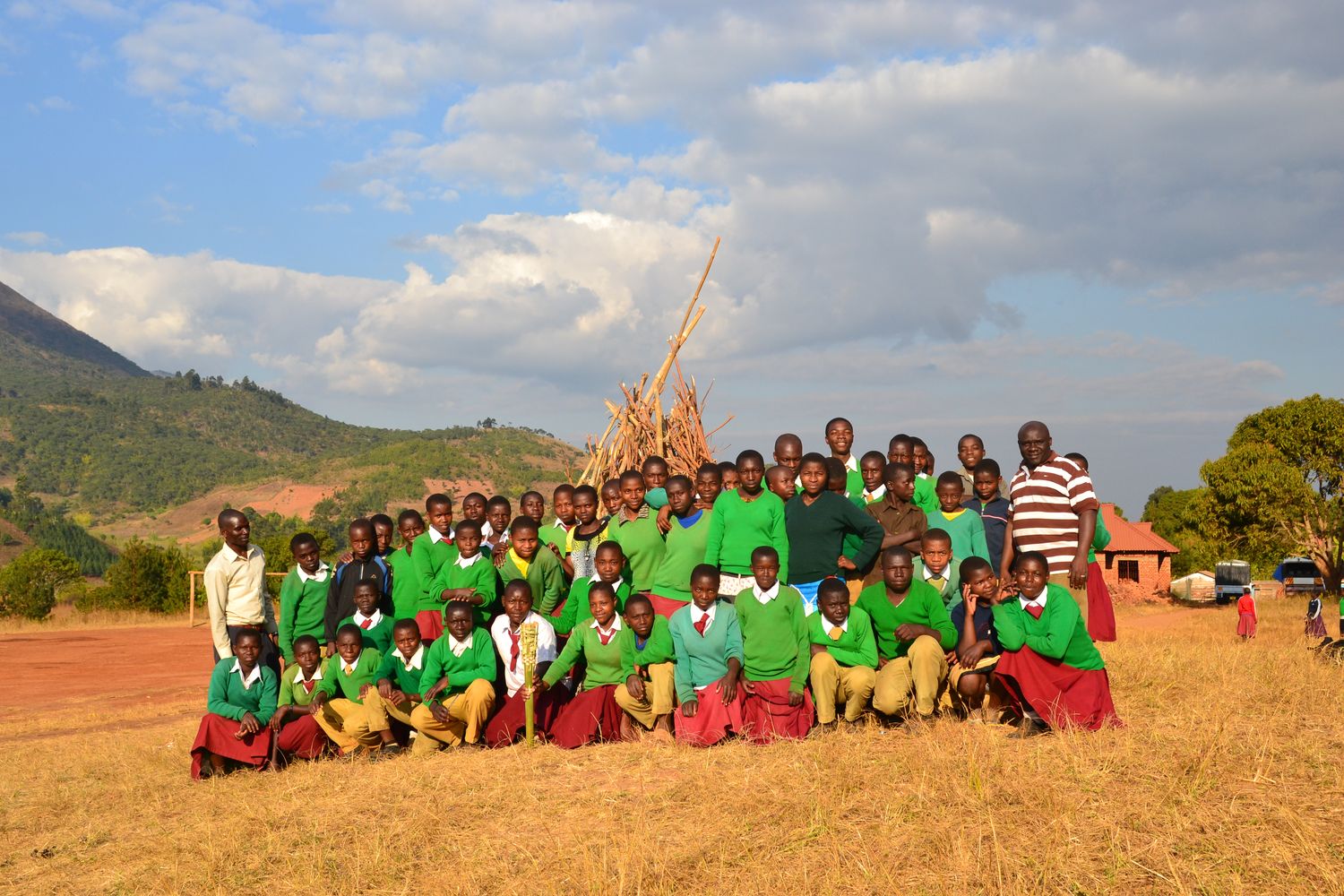
Volunteers and LDF team, photo by Irina Mihalcut
Despite facing numerous challenges, from coordinating with local partners (authorities, schools, churches, informal leaders & NGOs) to securing funding, the drive to organize the festival grew stronger every month. In terms of financing, the team managed to secure 600,000 in cash donations (mainly due to the fundraising skills of Jon Elvestad, the co-founder of Stikado) along with valuable in-kind contributions and sponsorships from local, national, and international sponsors. In total, the budget for the festival was a modest 1,900,000 Tanzanian shillings (approx. 700 euros),
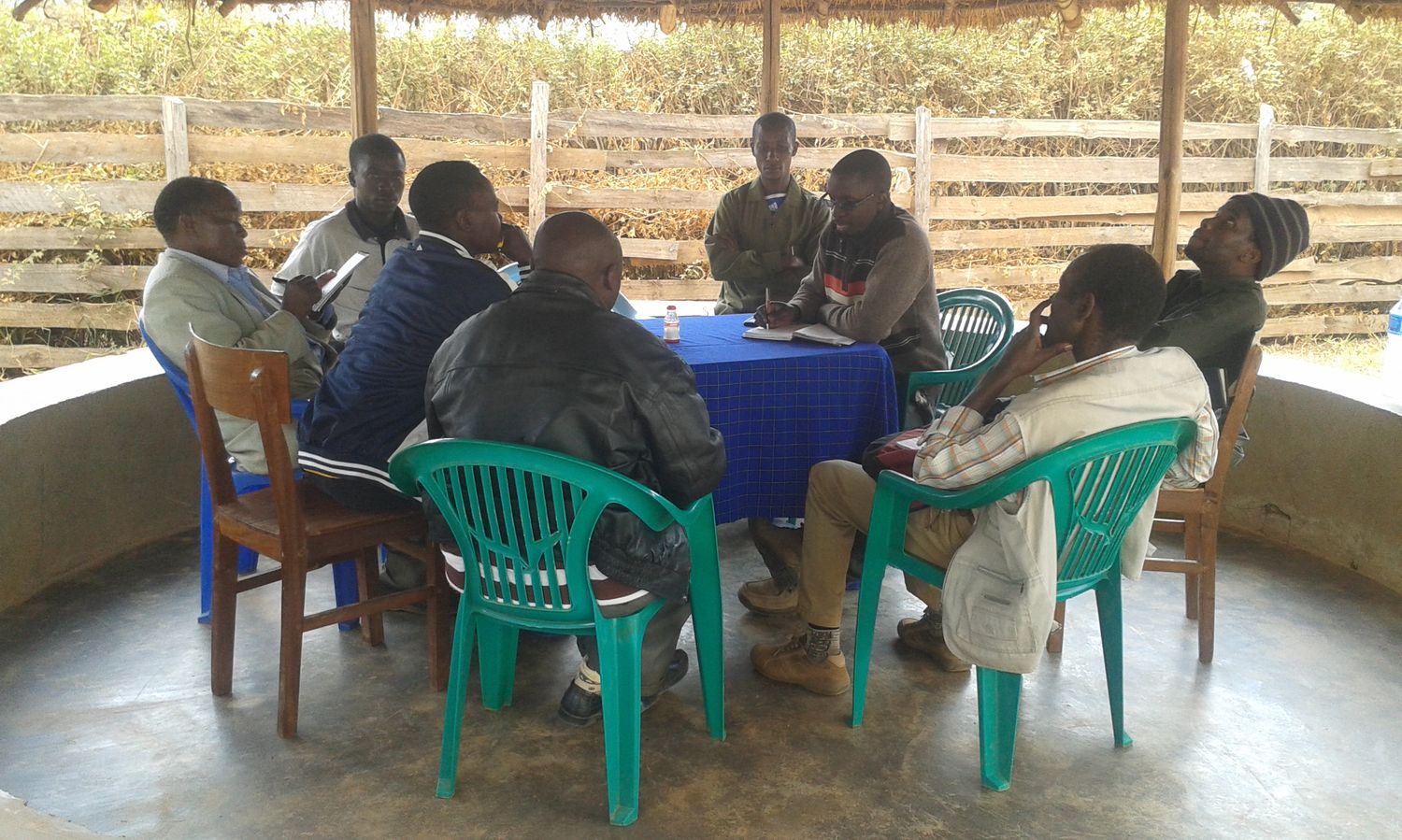
LDF team during a planning meeting for the festival, photo by Irina Mihălcuț
The LDF team showed a lot of dedication in coordinating with the local community to ensure that every aspect of the festival was meticulously prepared. Trash bins, crafted from local bamboo, have been placed on the festival’s ground, showing again the commitment to protecting the environment.
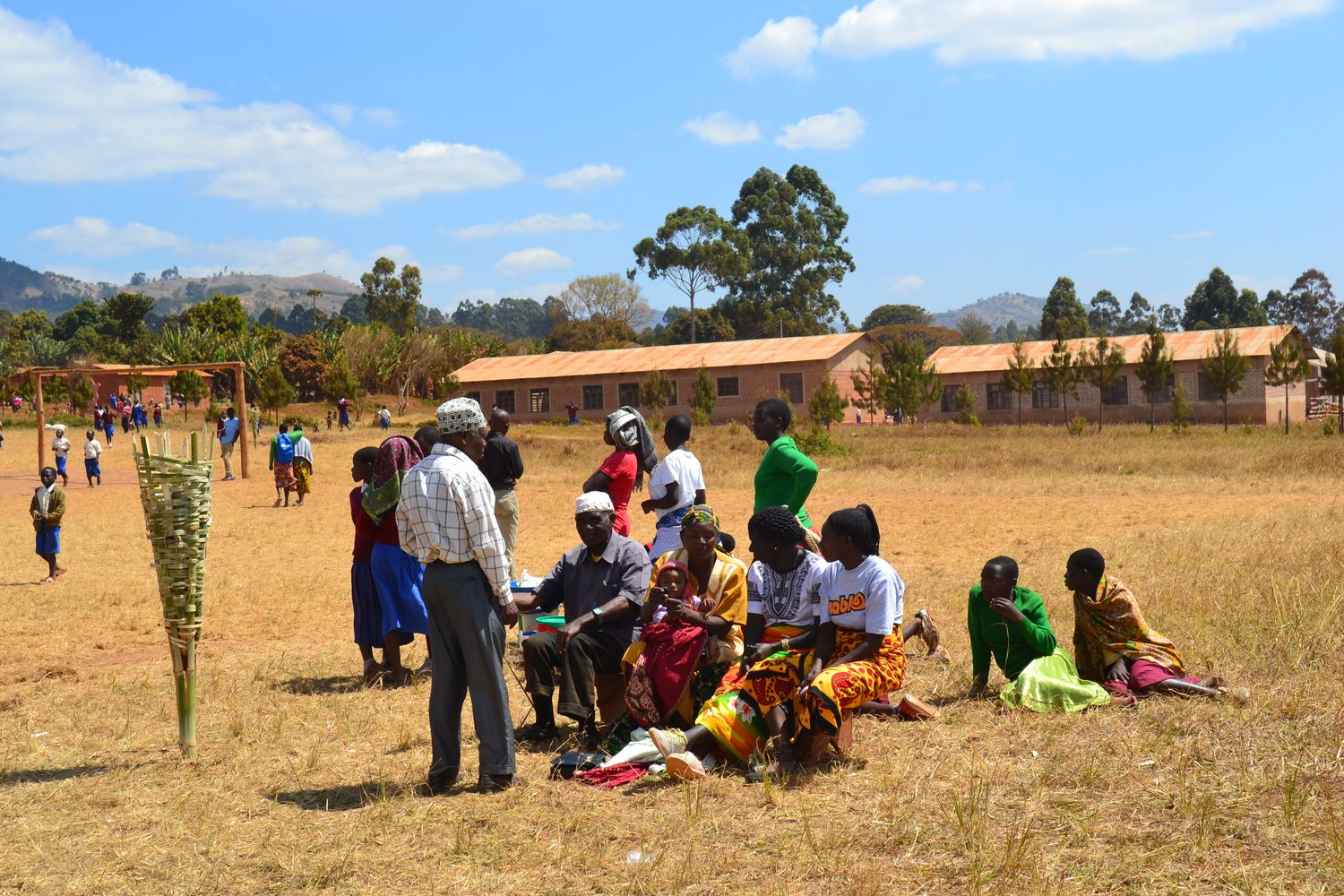
Eco trash bin hand-made out of bamboo, photo by Irina Mihălcuț
The aroma of traditional food such as karanga (ground nuts), mandazi (sweet fried bread), and chapati (flat-bread) filled the air, offering the public a taste of authentic local flavors.
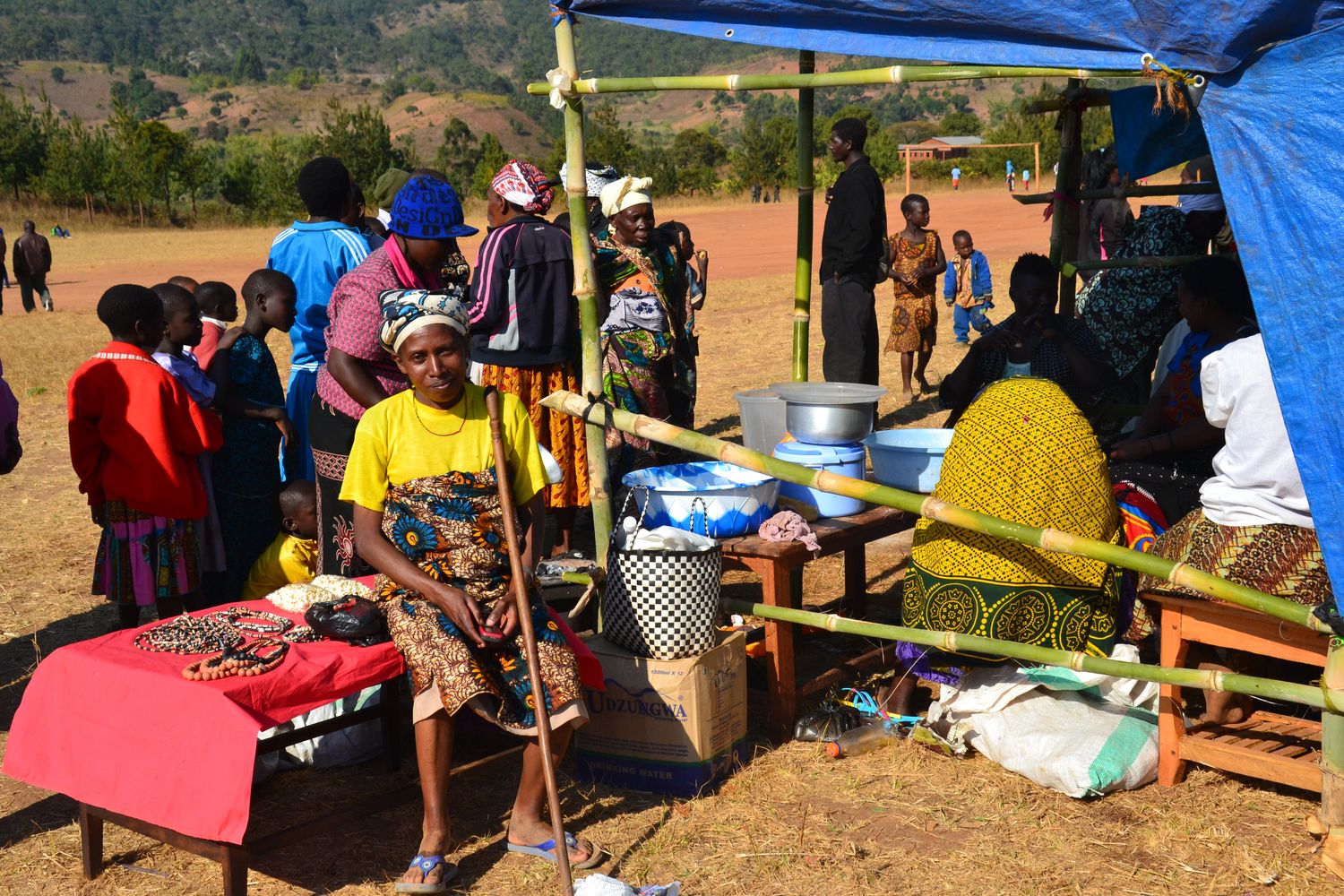
Locals selling crafts and traditional food, photo by Irina Mihalcut
The stage and guest area were beautifully decorated, and the sound system and generator were carefully set up reflecting the care and pride the community always puts in such events. Safety measures were put in place, with students from the nursing school ready to give first aid care in case of need.
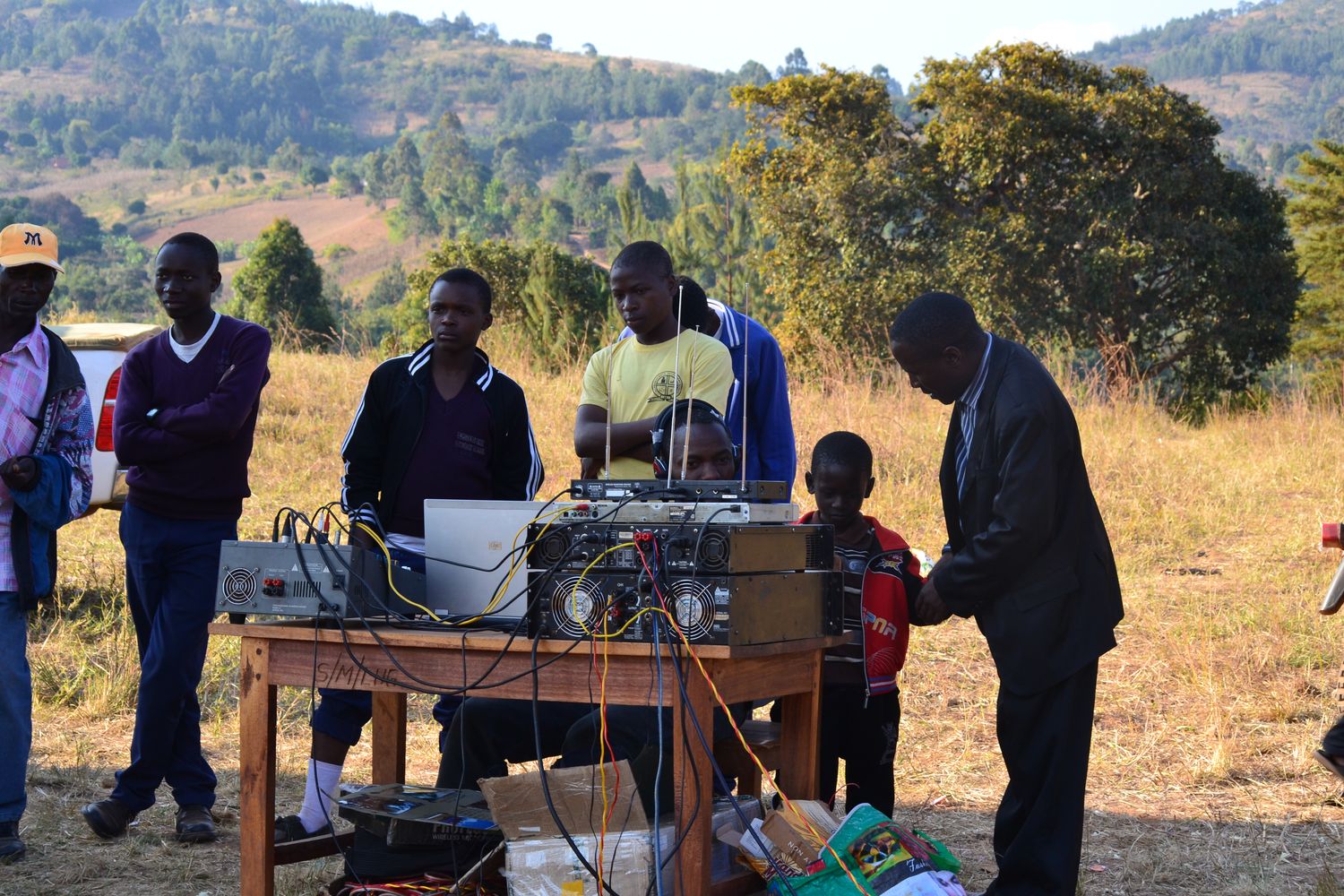
The sound system set up for the festival, photo by Jon Elvestad
Lugarawa Days Festival was the first event of its kind in the region and offered many unique activities. Some of these included: the first interfaith open-air religious service, the first long-distance running competition, the first fun olympics, the first community bonfire, the first ward football and netball championships, the first schools' positive protest parade, or the first photo exhibition. All this energy created a project that, right from the beginning, brought the whole Lugarawa Ward together for a common cause and it marked the beginning of a new way of community building in the area.
The program
The festival’s lineup included about 20 different activities and it attracted, during the two days, more than 2500 attendees of all ages and from all walks of life, from Lugarawa Ward, from other places in Tanzania, and from abroad.
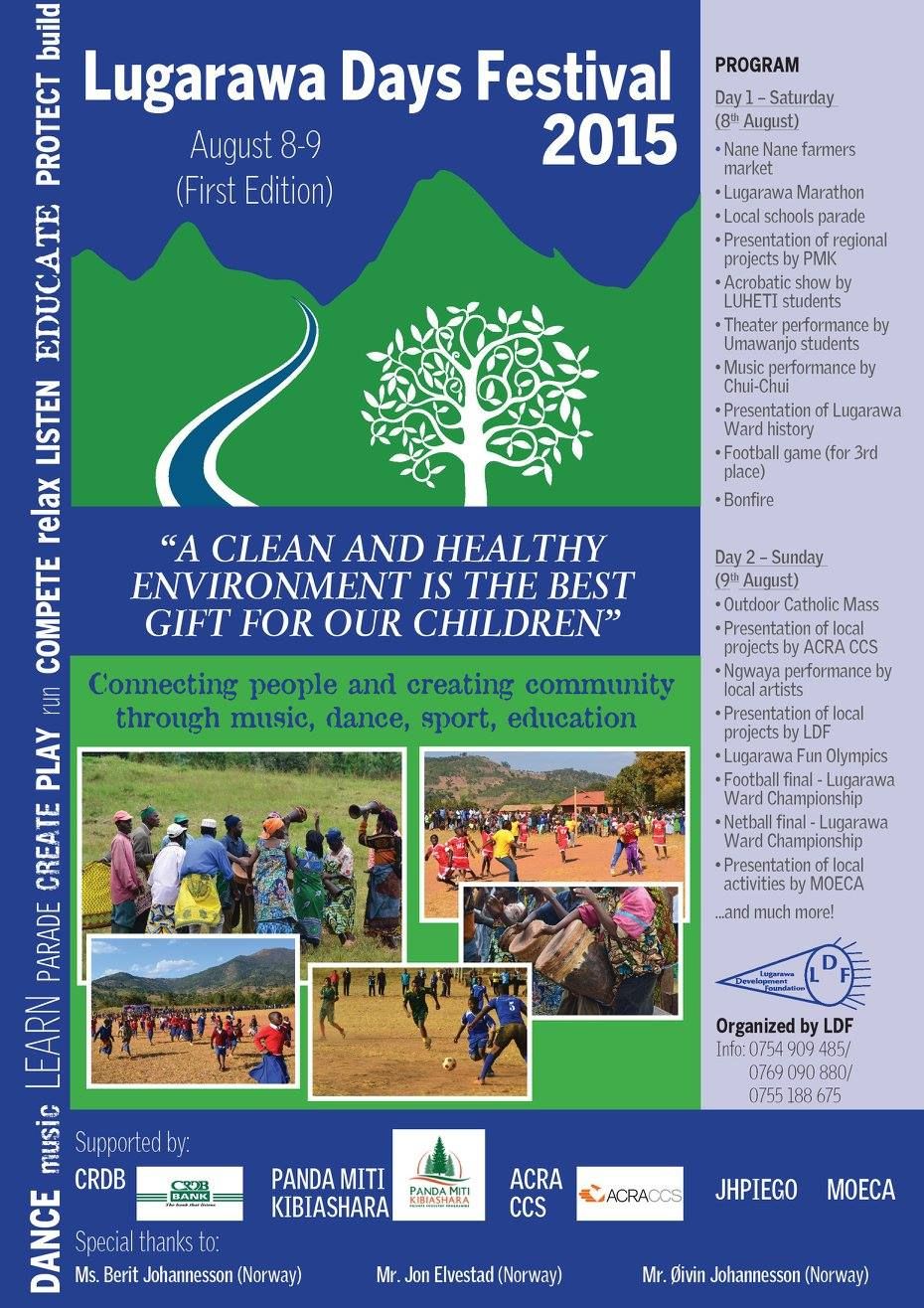
The official festival poster, designed by Mihaela Ciocoiu
Nane Nane farmers market
The Lugarawa Days Festival kicked off with the opening of the vibrant farmers market in the center of Lugarawa. Apart from the regular local farmers that every week were selling fresh vegetables, eggs, and fruits, with this occasion were present also local artisans and farmers from villages outside of Lugarawa Ward. They joined the locals for the Nane Nane, the annual celebration that recognizes the contribution of farmers to the Tanzanian economy. This was a really special moment for the festival team. It was an opportunity to share info about the activities planned for the festival and also to show some love and appreciation for the hardworking farmers who dedicate themselves to feeding the community all year long.
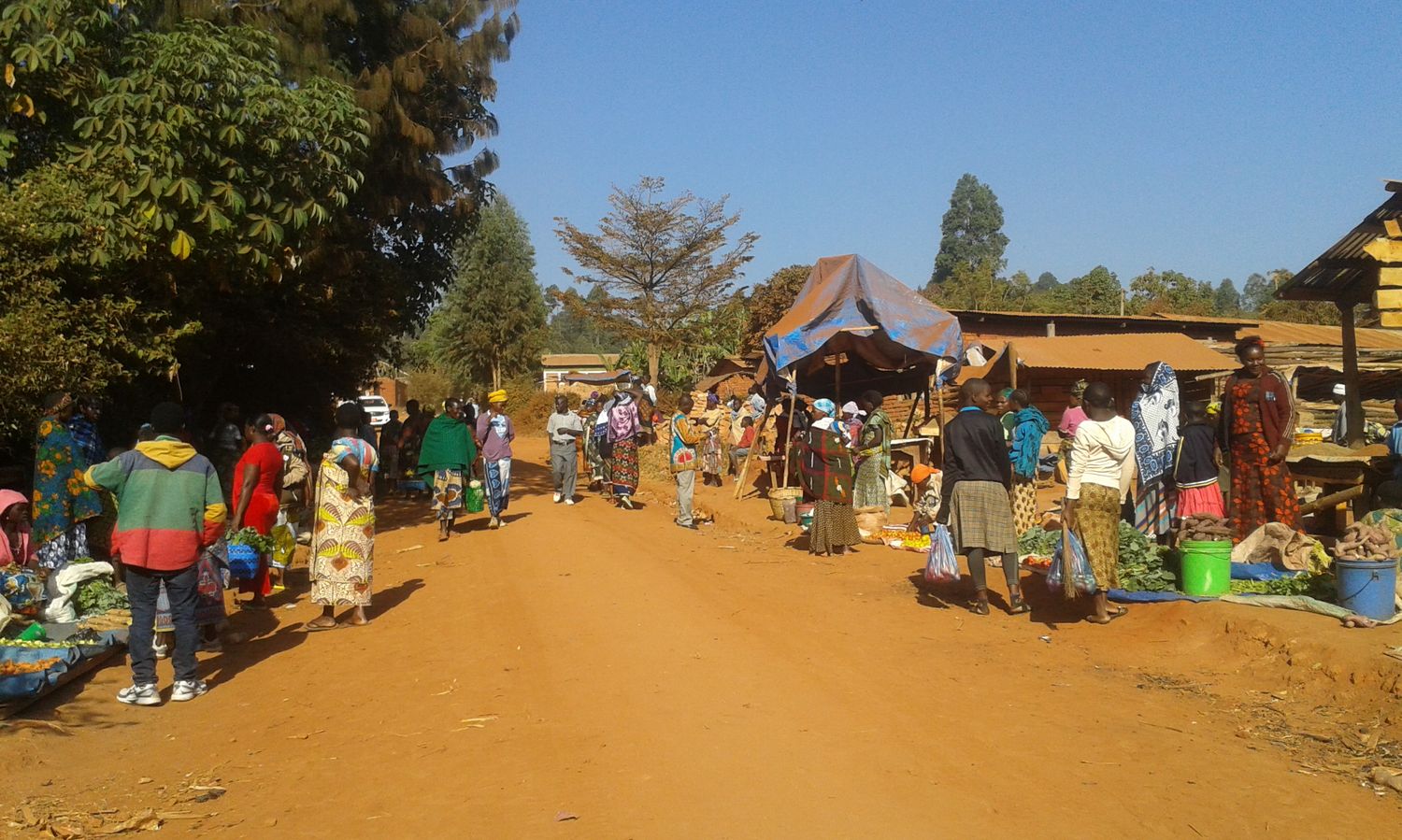
The Nane Nane market in the center of Lugarawa, photo by Irina Mihălcuț
Running competition
Against the backdrop of scenic landscapes, on the dusty dirt road connecting Mdilidili and Lugarawa villages, runners did a challenging 6-kilometer course under the scorching sun, testing their endurance and speed. Villagers cheered along the sidelines, witnessing later on moments of triumph as the winners received their medals on the podium. This activity not only celebrated athleticism and the local beautiful nature, but also spread a sense of unity and healthy competition within the community.
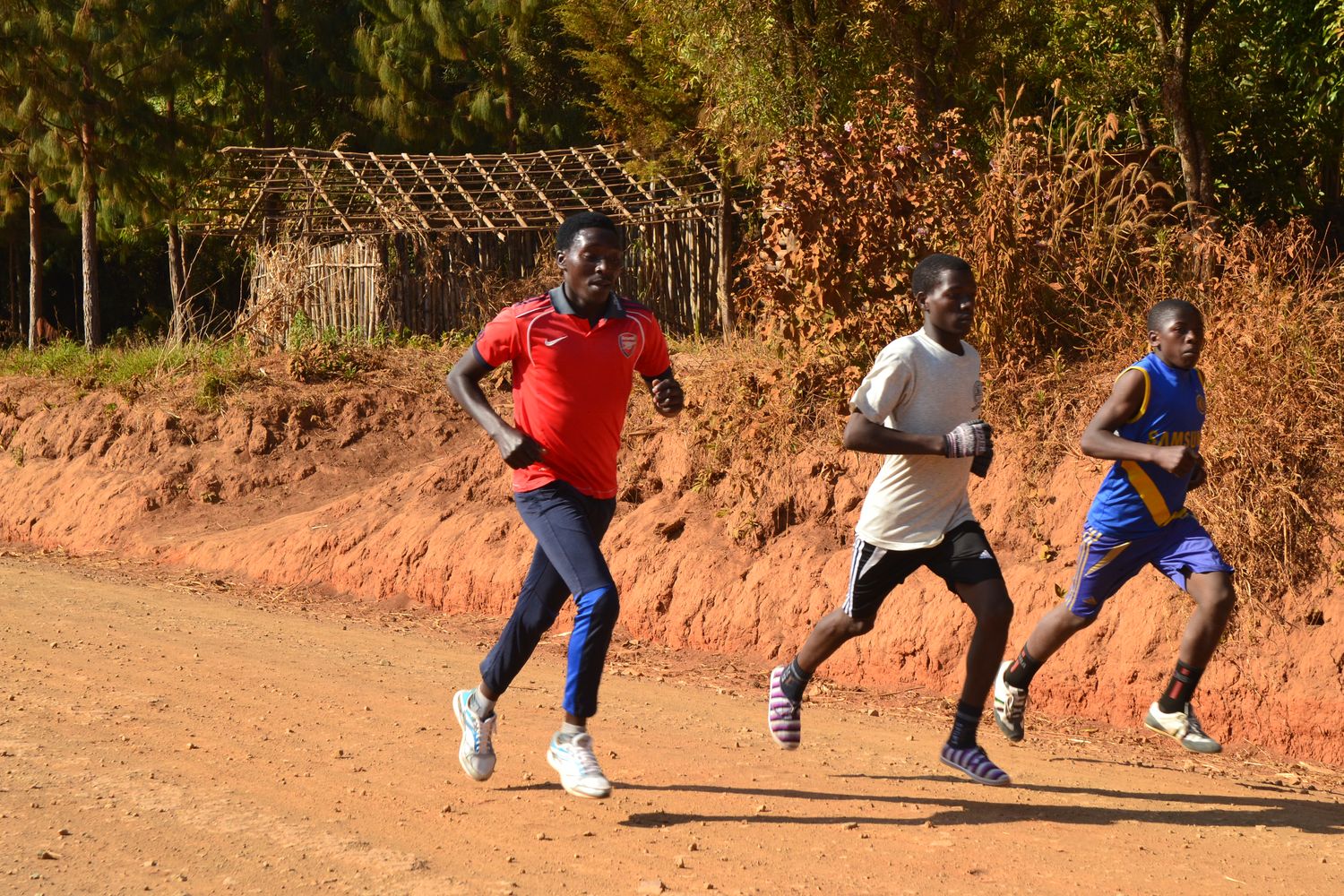
Running competitors on the road between Mdilidili and Lugarawa, photo by Jon Elvestad
Schools' positive protest parade
The festival built a vibrant energy in the center of Lugarawa as schools from the local area assembled for a colorful positive protest parade, asking for a change in the way the local community was dealing with the natural resources and showing their commitment to protecting the nature. Each school (including the local kindergarten) had a team led by a captain proudly bearing a banner with an environmental message. Some parade teams added extra energy through drumming, songs, or cheers, engaging even more the crowd. About 500 children participated in this activity.
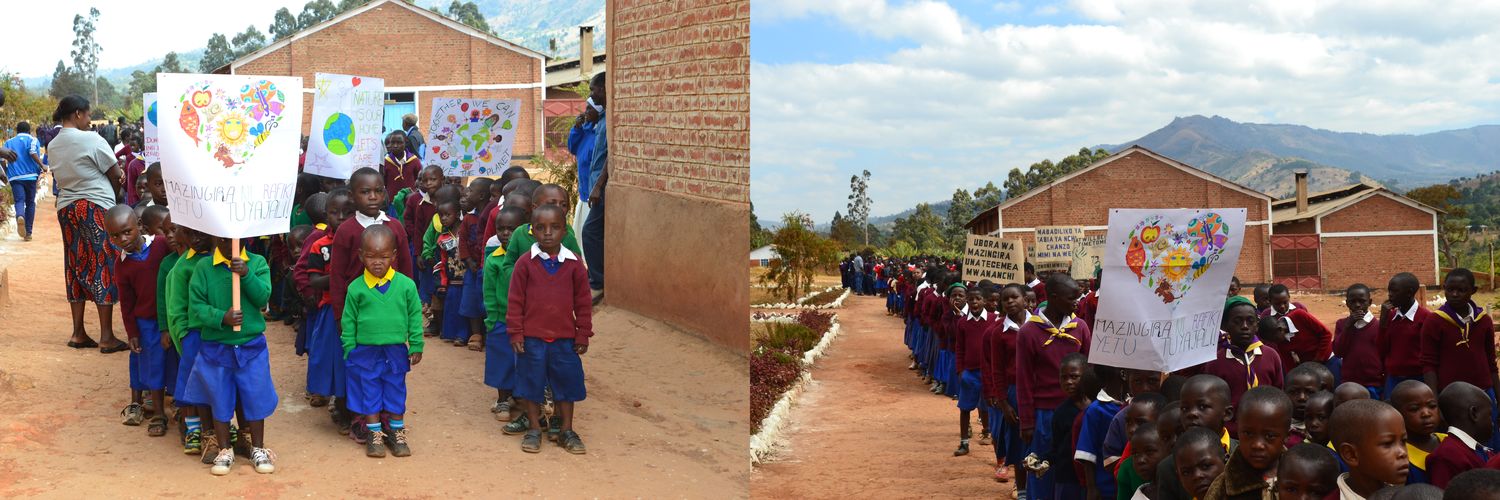
Schools preparing for the festival parade, photos by Irina Mihălcuț
Lugarawa research competition
One of the pre-festival activities, was a research competition between the secondary schools, through which students had the opportunity to learn more about Lugarawa Ward. From exploring the area's geography and climate to analyzing its social fabric and local issues, students embarked on a journey of discovery. Each team prepared a presentation detailing the ward's history, environment, social dynamics, and future aspirations. The winning team (Umawanjo Boys’ Secondary School) had a tent on the festival ground where they interacted with the public. In this way, the festival organizers gave the opportunity to these young researchers to show even more how they can influence their community positively.
Football and netball championships
The excitement filled the valley during both days of the festival as teams and fans arrived from the nearby villages on foot or in pickup and open trucks, for the Lugarawa football and netball championships.
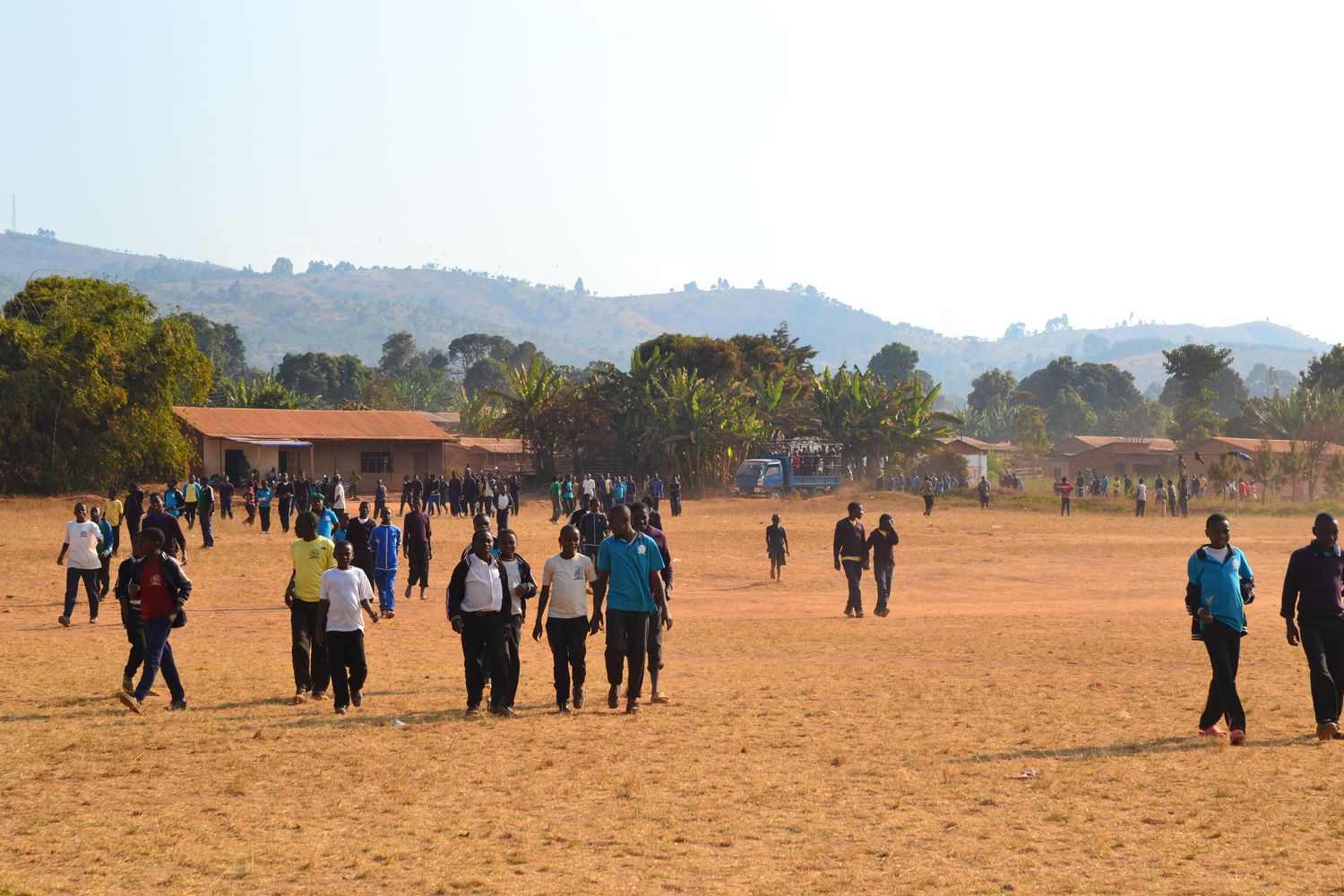
Public arriving to the festival on foot and in open trucks, photo by Irina Mihălcuț
With passion and energy, local teams competed for the first place. The Njele Boys team won the football championship and the Lugarawa Netball team won the netball championship. Both teams had the opportunity to raise the champions cups high under the cheers of supporters, marking in this way their name in Lugarawa's sporting history.
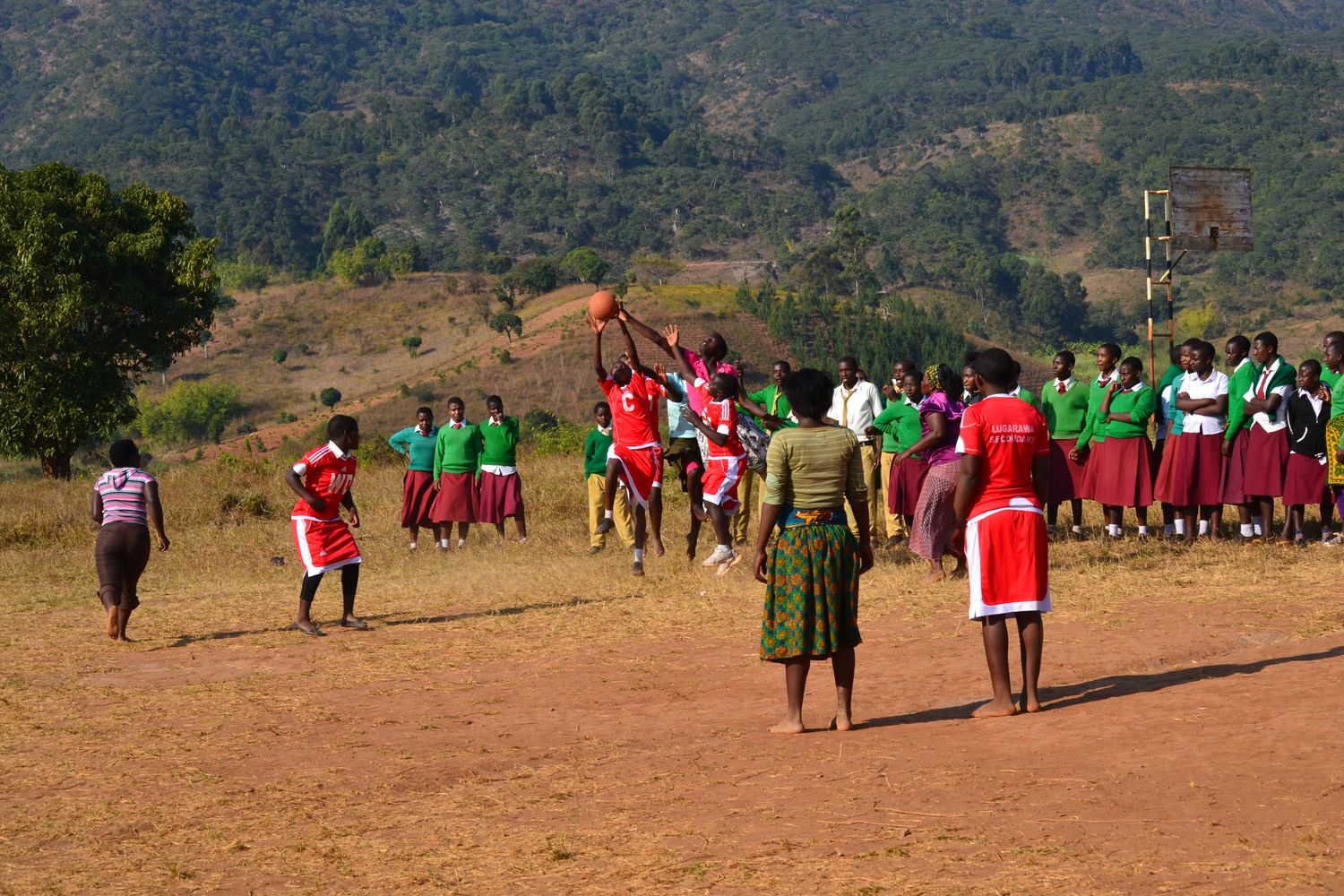
Teams competing in the netball championship, photo by Irina Mihălcuț
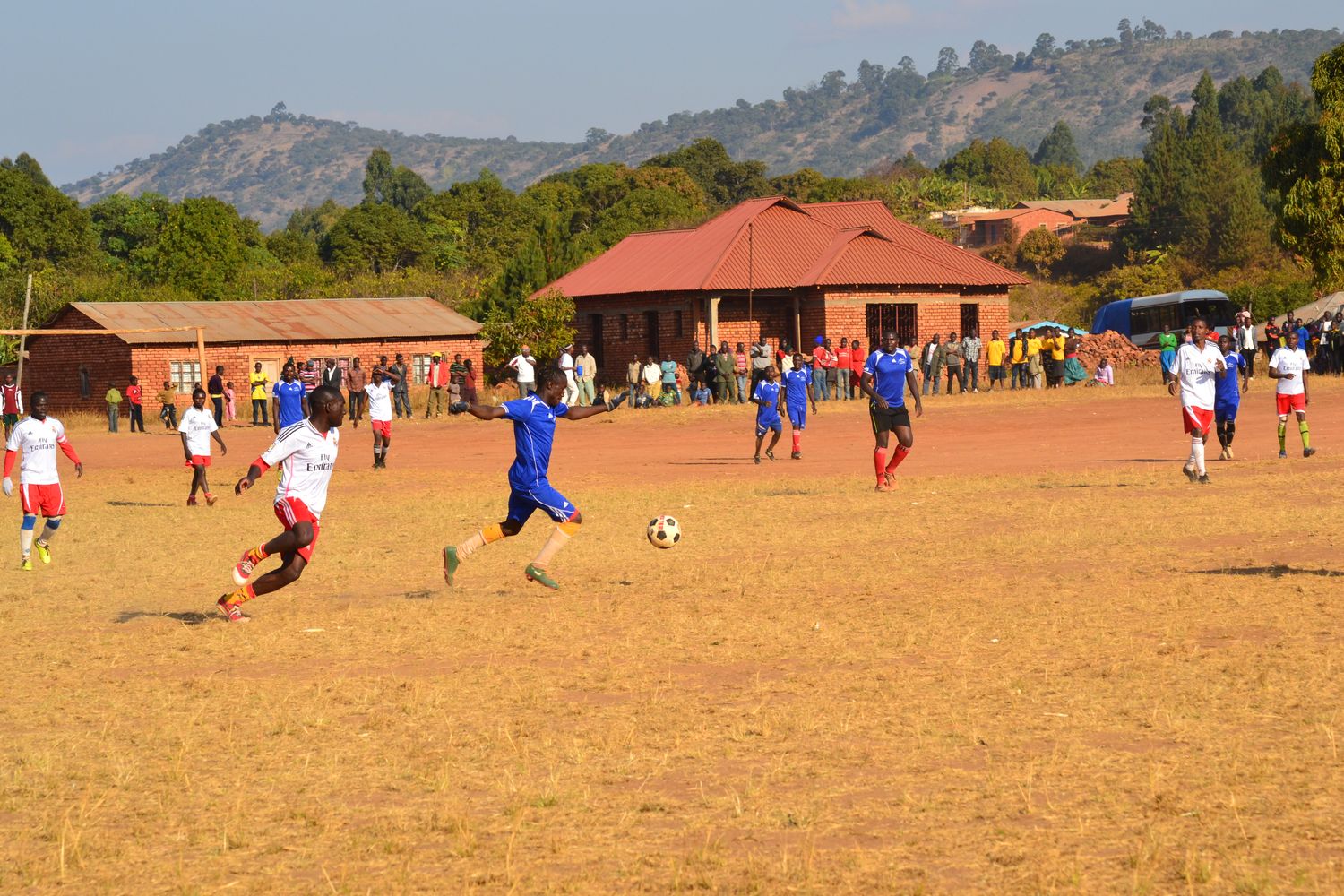
Teams competing in the football championship, photo by Irina Mihălcuț
The community bonfire
As the evening descended on the first day of the festival, the flickering flames of the bonfire organized by the festival team illuminated the night sky in the center of Lugarawa, casting a warm glow over the festivities. After a day full of energetic and dynamic activities, this was the perfect opportunity for friends and neighbors, for families and strangers, to hear traditional songs, to listen to the stories shared by the elders and to build new memories. It was a magical moment in which everybody had the chance to feel the community spirit and have a sense of togetherness.
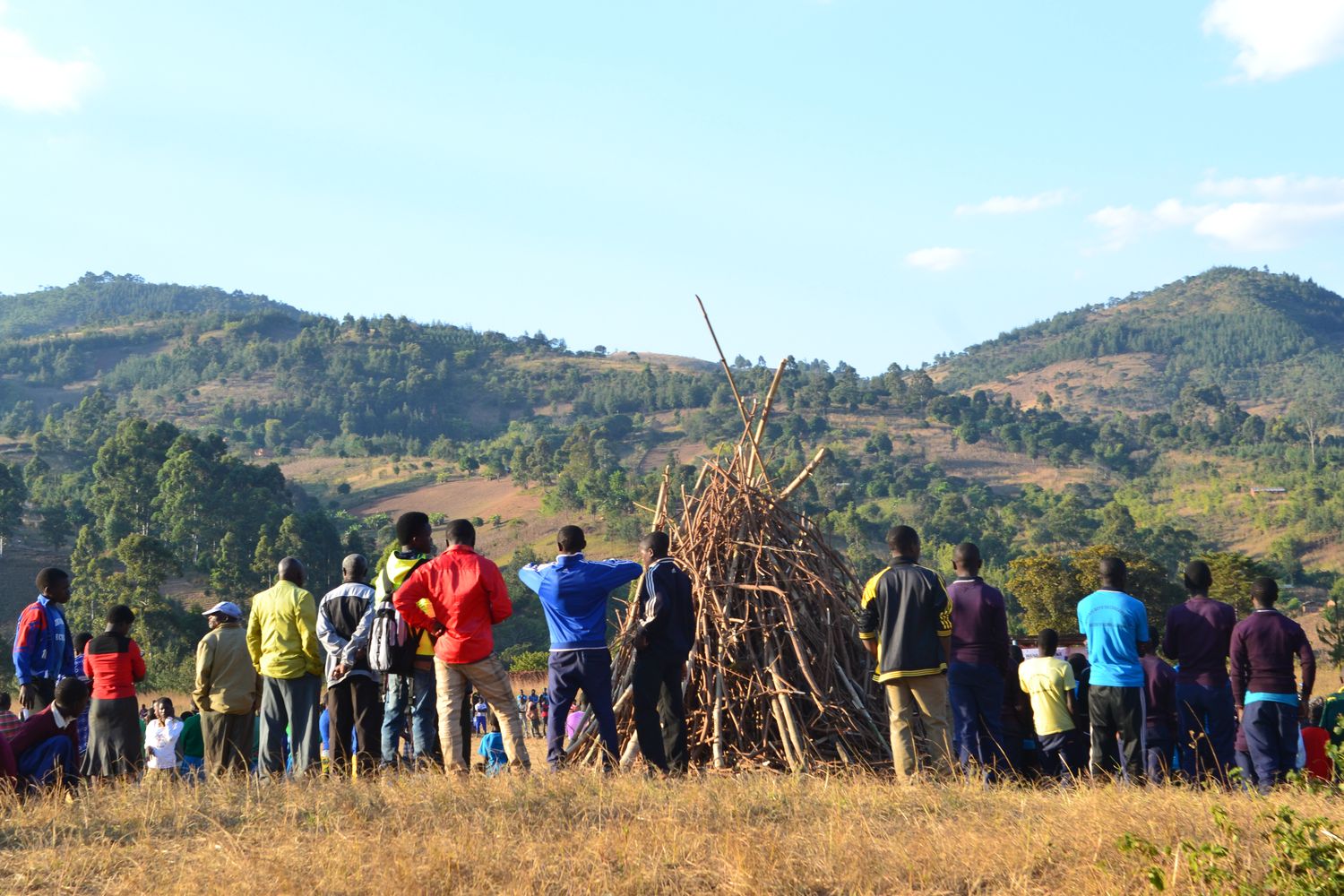
The bonfire, photo by Irina Mihălcuț
Fun olympics
On the second day of Lugarawa Days Festival, one of the most anticipated activities was the fun olympics. It was the first time that such an activity was taking place in the area and many locals were extremely curious about what was planned. It was a moment filled with laughter and energy from start to finish. Teams competed in pairs in a running race, teams showed all their strength in the tug of war, or hopped around in sacks during the sack race. Participants also tested their balance in the egg and spoon race and, to top it all off, there was the chicken race, a cherished Tanzanian tradition that added an extra dose of fun and energy to the festivities.
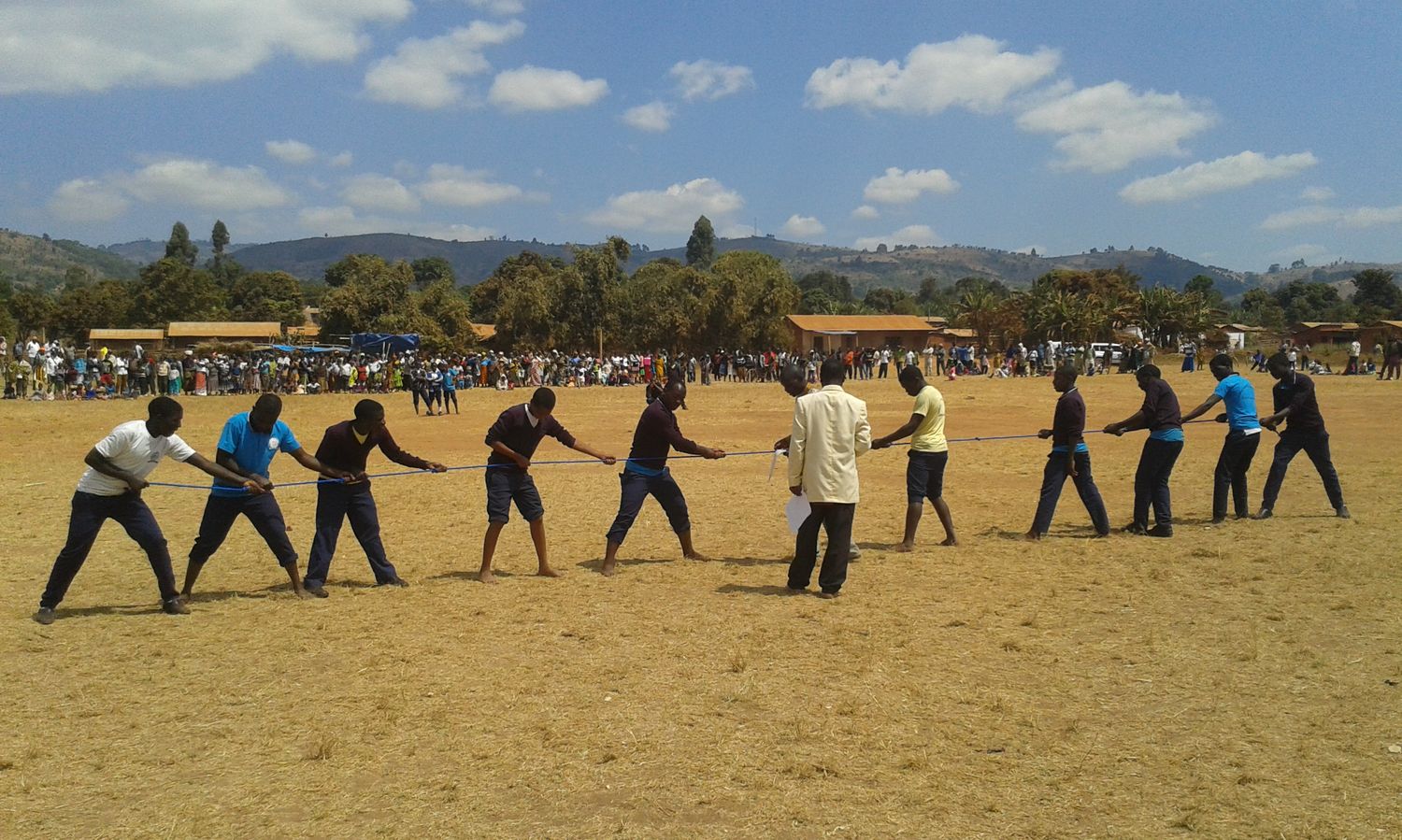
Teams competing in the tug of war, photo by Irina Mihălcuț
Local artists
Lugarawa Days Festival was also a celebration of creativity, a gathering where local talents put their energy into creating unique artistic moments centered around the festival’s theme: nature's protection. During the two days of the festival, the public had the opportunity to see on the stage: the LUHETI (Lugarawa Health Training Institute ) students defying gravity with their acrobatic skills and filling the air with laughter and amazement; the choirs from the local churches and schools, who impressed with their beautiful voices; Chui-Chui, a young musician at the beginning of his career; the Ngwaya local group, who took everybody on a rhythmic journey, though their music and traditional dances showing a strong connection to mother nature.
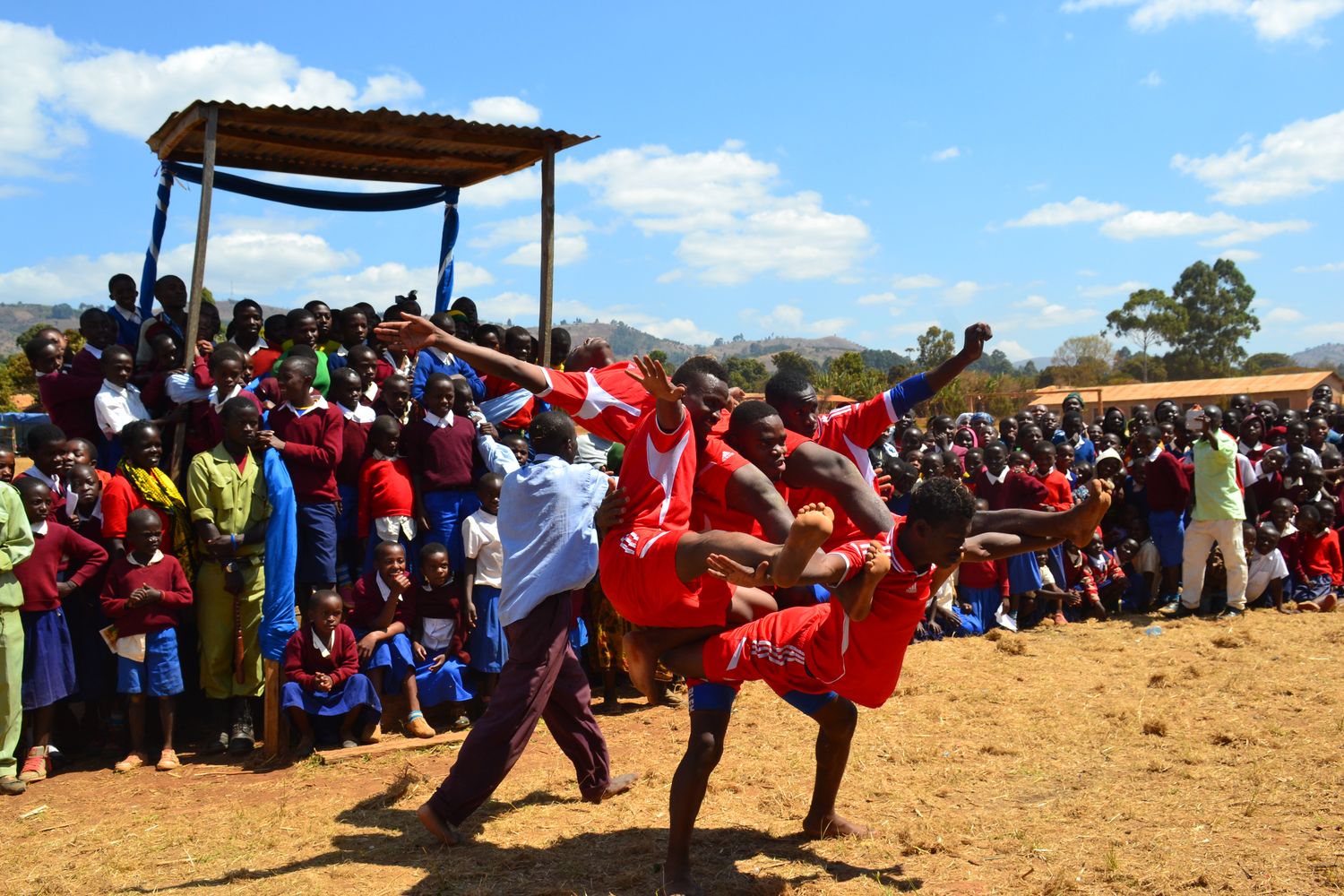
LUHETI acrobats performing during the festival, photo by Irina Mihălcuț
The message
The festival team made sure that the program included many elements showing their commitment to protecting nature and changing the community for the better. For example, the LDF photo exhibition introduced the activities that the organization has done in the ward, especially the ones focusing on protecting the environment. Presentations were made by partner organizations, focusing on important issues that needed urgent attention: fast deforestation, scarcity and pollution of the local water resources, increase of toxic trash in nature (mainly plastic and construction materials), and destruction of endemic flora. One of the elders of Lugarawa presented important information about the history and local fauna and flora, insisting on the need for inter-generational dialogue.
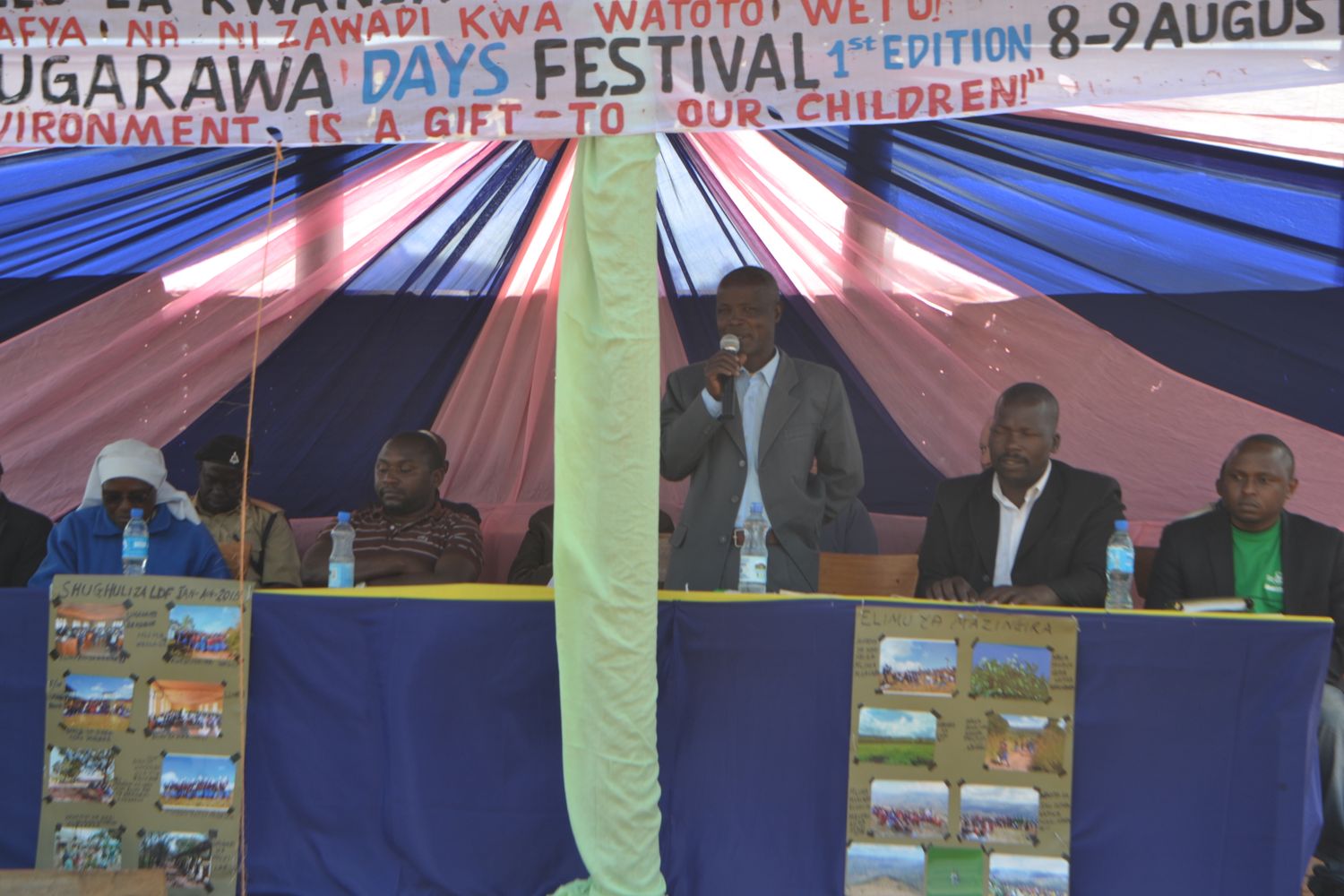
Representative of a local organization presenting during the festival, photo by Irina Mihălcuț
Lugarawa Days Festival, through the creativity of local artists and all the activities included in the program, managed to transmit a strong message: “A clean and healthy environment is the best gift for our children”.
Thoughts
Lugarawa Days Festival was a unique opportunity for the Stikado co-founding team to see, first-hand, the importance of learning from the experiences of others and of sharing knowledge. The enthusiasm of the public, the LDF team, the partners, and the local authorities, showed the impact that partnerships and collaboration can have on provoking positive change. At the end of the event, many expressed a desire for similar events and promised to get involved, even more, in future editions.
Beyond its immediate impact, the festival left a lasting impression on the community, showing how important it is to raise awareness about environmental problems and how crucial it is to work together for a common goal. The festival wasn't just about words and fun; it was about leading by example and inspiring action.
The success of the festival also attracted attention from partners like CRDB and Panda Miti Kibiashara, who appreciated the dynamic spirit of Lugarawa Ward. CRDB expressed the idea of planning to establish a branch in Lugarawa, while Panda Miti Kibiashara was exploring opportunities for their commercial tree planting project within the local community.
Lugarawa Days Festival wasn't just an event—it was a new idea for bringing positive change, and it laid the ground for future projects and initiatives for all the people involved. We are extremely happy to have the opportunity to live, discover, and build strong friendships in Tanzania and we will always feel that we have a home in beautiful Lugarawa.
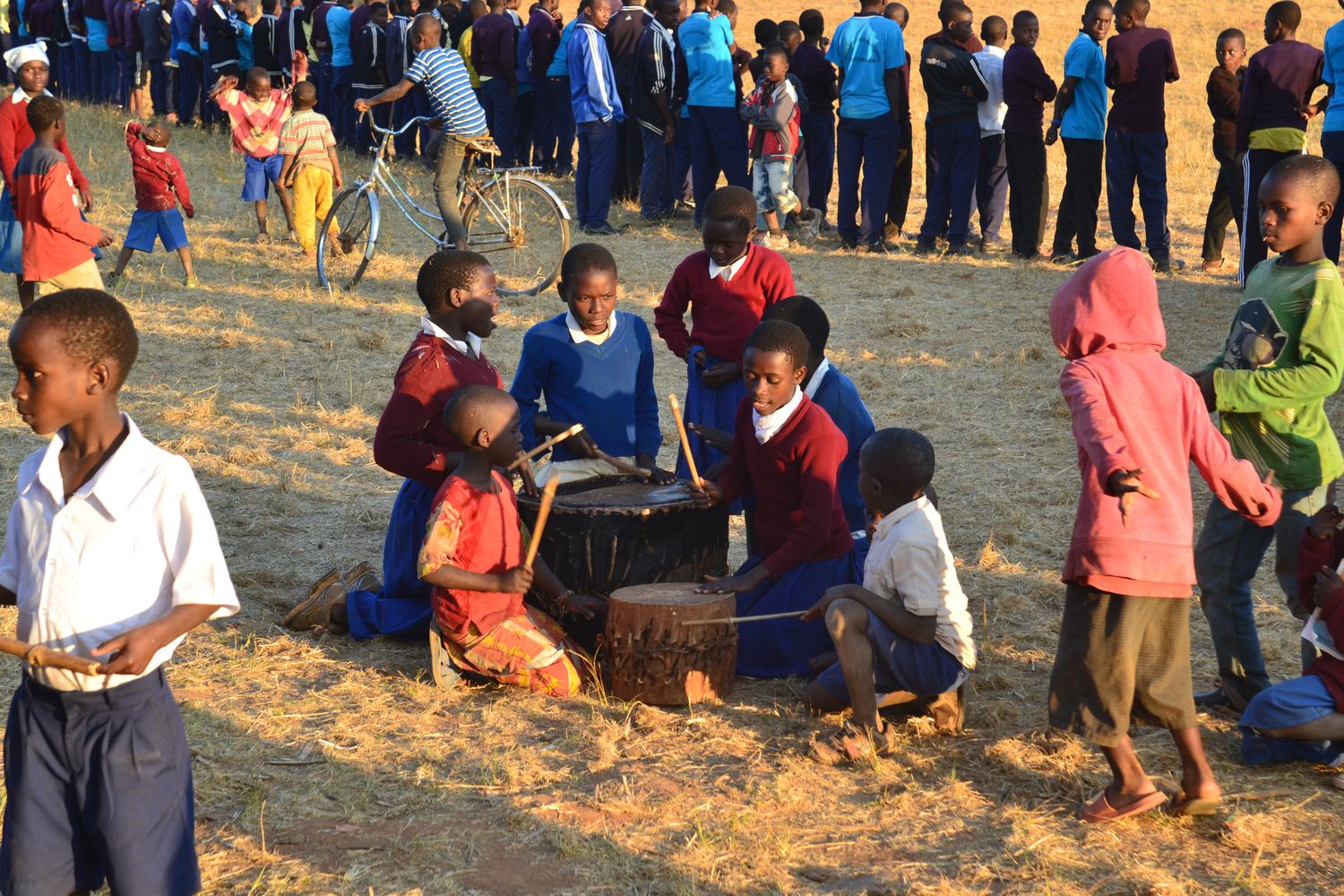
Kids playing with drums at the end of the festival, photo by Irina Mihălcuț
Partners and sponsors
The festival was supported by local schools and local authorities, and by national and international partners, including: CRDB Bank, Panda Miti Kibiashara, ACRA, JHPIEGO, Nessuno Escluso.

